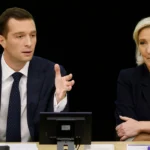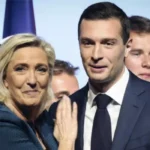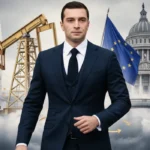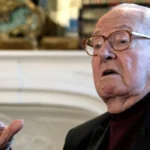Hungarian nationalist Prime Minister Viktor Orban was in Moscow on Friday, July 5, “as part of his peace mission” regarding the Russian invasion of Ukraine, provoking indignation at the head of the EU, who recalls that he acts “without a mandate” and denounces any temptation to “appeasement”.
For his part, Vladimir Putin stuck to his positions by receiving the Hungarian Prime Minister at the Kremlin. “Russia wants a complete and definitive end to the conflict [in Ukraine], the condition for this is […] the complete withdrawal of all Ukrainian soldiers from the Donetsk and Lugansk people’s republics and from the Zaporizhzhia and Kherson,” the Russian president told the press after his meeting, reiterating the demands already brushed aside in mid-June by kyiv and the West.
“There are still many steps to take” to “end the war” and “establish peace,” recognized the Hungarian leader, alongside Vladimir Putin. “There are fewer and fewer people who can speak to all the belligerents and Hungary” is able to do so, he assured.
Victor Orban visited the Ukrainian capital on Tuesday, where President Volodymyr Zelensky also reiterated his demands for the complete withdrawal of Russians from Ukrainian territory and the payment of reparations.
The Russian head of state, for his part, took advantage of the visit of his only ally in the European Union to embarrass Brussels, all a few days before a NATO summit in Washington where he will be question of Ukraine.
At the start of this meeting, he stressed that the Hungarian Prime Minister had arrived in Moscow “not only as a long-standing partner, but also as President of the Council” of the Union.
The ambiguity of the double hat of Viktor Orban, head of the Hungarian government and president of the Council of the EU, has bristled Budapest’s European partners, who appear to be unfailing supporters of Ukraine and have cut ties with Russia.
Outcry in Brussels
For the head of European diplomacy, Josep Borrell, Viktor Orban “does not represent the EU in any way”, while Kremlin spokesperson Dimitri Peskov ironically said that he did not belong to Moscow to understand the “subtlety of powers” in Brussels.
Charles Michel, the president of the European Council, which brings together the leaders of the Twenty-Seven, reacted on Thursday evening to the unofficial announcement of this trip.
“The rotating EU presidency has no mandate to engage in dialogue with Russia on behalf of the EU,” wrote Charles Michel on X, emphasizing that, for the Twenty-Seven, “Russia is the “aggressor, Ukraine is the victim” and that “no discussion can take place without Ukraine”.
EU solidarity with kyiv will not weaken, German Chancellor Olaf Scholz assured.
While this visit risks blurring positions in the run-up to the next summit of the Atlantic Alliance, the secretary general of this organization, Jens Soltenberg, insisted on the fact that “Viktor Orban does not represent NATO at these meetings, he represents his own country”, admitting however that the Alliance had been “informed” of this trip.
kyiv, which maintains complicated relations with Budapest due in particular to its pro-Russian positions, criticized this trip to Moscow, which was decided “without any agreement or coordination with Ukraine”.
“We recall that, for our country, the principle ‘no agreement on Ukraine without Ukraine’ remains inviolable,” Ukrainian diplomacy insisted.
The conditions for stopping the conflict set by Russia are that Ukraine cedes to it the four regions it claims to annex, in addition to Crimea, and that it renounces its alliance with the West. A demand for de facto capitulation.
In kyiv, Viktor Orban ruled that Ukraine must accept a ceasefire, a prerequisite rejected by the West and the Ukrainians.
Ukraine is demanding a “just peace” which involves the withdrawal of Russian troops and respect for its territorial integrity.
The rotating presidency within the EU, which Hungary holds until the end of the year, allows the country which holds it to control the agenda of the meetings of the Twenty-Seven, with the exception of those of Foreign Ministers – a significant but not absolute power, according to several European diplomats.
Budapest had promised to ensure a “normal” presidency, despite the numerous disagreements, particularly over Russia, which pit it against its partners.
“We will act as an impartial mediator”, affirmed the Minister of European Affairs Janos Boka, before adding that Hungary will take the opportunity to put forward its “vision of Europe” and “right the bar […] ] in the right direction.
This article is originally published on france24.com






